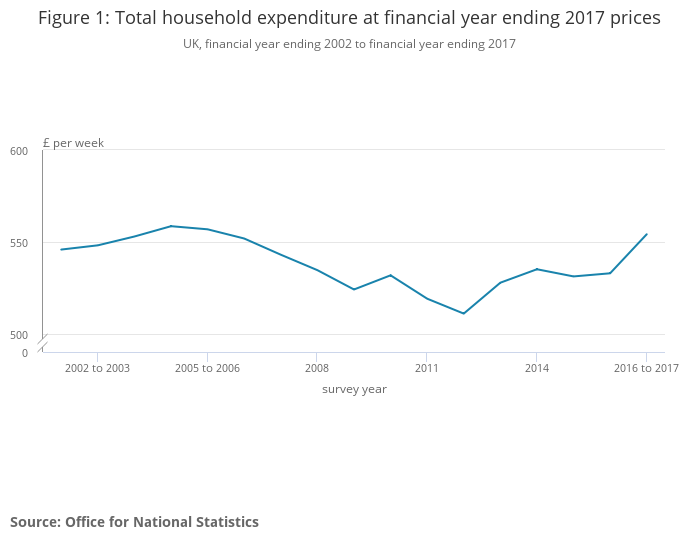Work TV
Watch our TV Channel dedicated to the ‘World of Work’. Explore our video library for informative videos featuring career opportunities at leading companies, franchising opportunities, further education and recruitment professions and their services.
Simon Collyer
Rule Change Means Homelessness Advice Extension from April 2018
Clients living in England threatened with homelessness within 56 days are within scope for legal advice following implementation of housing legislation passed in April 2017.
Previously, clients in England were not entitled to legal advice until the threat of homelessness was within 28 days.
Providers will need to ensure that they are aware of the new rules for clients in England, which come into effect on 3 April 2018.
The change will mean that the definition is now consistent across both England and Wales. Legislation in Wales (Housing (Wales) Act 2014) introduced this change on 27 April 2015.
These changes were introduced under the Homelessness Reduction Act 2017, which received Royal Assent on 27 April 2017.
Turning the Tide - The Centre for Social Justice Looks At Deprivation, Rhy. Margate, Clacton-on-Sea, Blackpool, Great Yarmouth
Turning the Tide. The Centre for Social Justice have been examining the fortunes of five seaside towns: Rhy. Margate, Clacton-on-Sea, Blackpool, Great Yarmouth.
This is what they have to say:
Cities have come to embody how we view modern deprivation and poverty. Yet some of the most pronounced disadvantage in our country exists away from the big cities. This short study of five seaside towns – Rhyl, Margate, Clacton-on-Sea, Blackpool, Great Yarmouth – offers a glimpse of how social breakdown has affected some smaller communities, asks what factors continue to hold them back, and considers what more can be done to help them move on.

Image: Some seaside towns have suffered since their heyday
The full report can be down loaded below:
Fancy Getting Fit Like the Scots?
SNP MSP Bruce Crawford is encouraging commuters across Scotland to do the Daily Mile challenge this Friday (6 April) and put a spring in their step on National Walk to Work Day.
The Daily Mile challenge was first introduced by Elaine Wyllie in 2012 to St Ninian’s primary School in Mr Crawford’s Stirling constituency.
The Scottish Government has since written to schools, nurseries, colleges and universities as well as public and private sector companies encouraging them to help Scotland become the world's first Daily Mile Nation.
Researchers at Essex University last year demonstrated the positive impact of the Daily Mile on improving attainment as well as self-esteem and wellbeing amongst pupils in an East London school.

Image: Bruce Crawford SNP MSP
Commenting, Bruce Crawford SNP MSP for Stirling said:
“I hope that as many people as possible join me on the Daily Mile challenge this Friday and put a spring in their step on National Walk to Work Day.
“Walking all or part of the journey to work is a great way to clear your mind and improve your health while reducing your carbon footprint.
“The Daily Mile challenge, first introduced in a Stirling school, is helping fight obesity, improve pupil behaviour, focus and confidence. Indeed, a study by Essex University last year found that participants of the Daily Mile programme did better than expected in classroom tests simply by getting active.
“The SNP Government is committed to making sure as many people as possible participate in this great example of Scottish innovation, to one day become a Daily Mile Nation, and I hope this Friday will inspire more people to ditch their usual mode of transport and participate in the Daily Mile challenge.”

SNP Demand UK Government Change Law To Ensure Real Living Wage For All
The SNP has said the Tory UK government is “letting young people down” by refusing to change the law to ensure all that workers are entitled to a real Living Wage.
Under current UK government legislation, younger workers can be discriminated against with lower wages, despite doing the same job. As of 1st April 2018, workers over the age of 25 are entitled to at least £7.83 an hour, while those aged 21 to 24 are only entitled to £7.38 an hour, those aged 18 to 20 are only entitled to £5.90 an hour, those under 18 are only entitled to £4.20 an hour, and apprentices are entitled to just £3.70 an hour.
27-year-old SNP MP for Glasgow East, David Linden, who left school at the age of 16 and started work as an apprentice, is calling on the UK government to “stop discriminating against young people”, and urgently change the law to ensure that all workers are entitled to a real Living Wage – currently £8.75 in Scotland, £10.20 in London.
While the powers to set the minimum wage remain reserved to Westminster, the SNP Scottish Government is working to encourage employers to pay the real Living Wage in Scotland. The SNP government’s Living Wage accreditation scheme has ensured over 1000 employers now pay a real Living Wage in Scotland – with plans to ensure a further 25,000 people benefit from their employer becoming Living Wage accredited in the next three years. 81.6% of Scottish workers earn the real Living Wage, the highest rate in the UK.
Commenting, David Linden MP said:
“The UK government must stop discriminating against young people – and finally change the law to ensure that all workers are entitled to a real Living Wage.
“The Tories are letting young people down by stubbornly refusing to end this discrimination, which penalises workers just because of their age, and takes no account of their needs, responsibilities and living costs.
“If the UK government won’t change the law then it must devolve the powers so that the SNP Scottish Government can introduce a real Living Wage for all workers in Scotland.
“The arguments for this discriminatory Tory policy just don’t stack up. The SNP government is working hard to encourage employers to pay a real Living Wage in Scotland – but as long the powers remain reserved to Westminster equality and fairness will remain out of reach for far too many.”

Image: Glasgow East, David Linden MP
Scottish Taxpayers Are Saving on Their Prescriptions Compared to Patients South of The Border
Scottish taxpayers are saving an average of over £160 a year on their prescriptions compared to patients south of the border, SPICe calculations reveal.
On average, Scots take out 19 prescriptions per year. If these were charged at the English rate of £8.60 each, people in Scotland would be out of pocket by an average of £1,143.80 since prescription charges were abolished in 2011.
Commenting, SNP MSP Emma Harper said:
“The SNP is proud of our record on free prescriptions – ensuring that ordinary Scots who are sick or living with long-term illnesses do not have to choose between medication and other necessities, like feeding their families or heating their homes.“Alongside scrapping tuition fees, ending parking charges at NHS-run hospital car parks, removing bridge tolls, protecting free eye tests, investing in childcare and building even more affordable housing – we’re demonstrating a firm commitment to providing public services that are free at the point of use in Scotland.
“While the Tories at Westminster charge sick people a small fortune for vital medication and the Tories at Holyrood campaign for tax cuts for the wealthiest, the SNP’s flagship free prescriptions policy removes a significant financial burden from adults in Scotland every year.”
Happy Easter
Happy Easter to all our audience. Why do we eat Easter Eggs at this time of year?
The Easter season in the UK includes the 40 days of lent and Holy week culminating in Easter Sunday – also known as Resurrection Sunday. In 2018, there are two Easter public holidays celebrated in the UK. Good Friday is observed across the UK, while Easter Monday is celebrated everywhere except Scotland.
So why Easter Eggs? The egg has many interpretations, but it is known as an ancient symbol of new life, and it has been associated with festivals celebrating spring.
From a Christian perspective, it is believed Easter eggs represent Jesus' resurrection. The outside of the egg looks dead, but inside there is new life, which is going to break out. Chocolate Easter eggs became popular because Easter is the end of the Lenten fast.
Not More Snow Please We Are British?
Not more snow surely?
As a weather system moves in from the south and comes up against cold air over the UK, there is the chance that rain could turn to heavy snow in places. Several cm of snow are possible, especially over hills, with drifting in strong winds. There is also the possibility of a few cm of wet snow gathering at lower levels. At present the extent and amounts of any snow are very uncertain, and it is quite possible that snow might not be too disruptive.
Household Spending Returned to Pre-Economic Downturn Levels
As the National Living Wage increases to £7.83 per hour on 1 April 2018, find out whether your lifestyle would be affordable on the National Living Wage. It takes someone on the average UK salary seven months to earn the annual salary of someone earning the NLW.
Main Points
Average weekly household spending rose to £554.20 in the financial year ending 2017; in real terms, this was a return to pre-economic downturn levels.
Households spent an average of £79.70 a week on transport, an increase of £5.40 in real terms when compared with the previous year; this makes transport the top spending category.
When comparing between English regions and UK constituent countries, average weekly household spending differed by more than £200.
Households in the 65-to-74-year-old age group spent nearly a fifth of their total spending on recreation and culture.
Households without children spent a higher proportion of their total spending on transport than households with children.
Average weekly spending of a 15-year-old was more than three times that of a 7-year-old.

ABC Note: The National Living Wage is the amount of money all employees aged over 25 are legally entitled to. It used to be known as the National Minimum Wage, but it was re-branded in 2016.The amount is lower than the real living wage which many organisations are signing up to. It was a clever bit of manoeuvring by the government to make themselves look more generous than they have actually been.
Tory U-Turn On Universal Credit Housing Benefit Policy
SNP Social Justice spokesperson at Westminster Neil Gray MP has said that a u-turn from the UK government on housing benefit for under 21s shows the Tories have ‘finally realised penalising young people in this way is callous.’
The comments come as the Department for Work and Pensions (DWP) published a written statement – just hours before the Easter recess at Westminster – confirming a major change in Universal Credit policy. The UK Government has confirmed it will amend regulations so that all 18-21 year olds will be entitled to claim support for housing costs in Universal Credit.
The current situation is that people between 18 and 21 who make a new claim to UC in UC Full Service areas – currently being rolled out - need to meet certain requirements in order to receive that vital financial housing support.
The statement also includes provision for a Youth Obligation – described as an ‘intensive package of labour market support for 18-21 year-olds looking to get into work.’
Neil Gray MP commented:
‘’This major u turn from the Tories shows they have finally realised that penalising young people – as they had done until now – is simply callous and could only lead to a rise in homelessness for young people.
‘’Any change of policy in the shambolic and damaging roll out of UC is welcome – but we need to see detail from the DWP on what they mean by saying young people will need to sign up to a ‘youth obligation‘ before accessing this much needed benefit - how that will work. We also need clarification on whether or not these changes will be linked in any way with sanctions. Our young people need support into work and into homes and not to be penalised as they start their life by having vital financial support removed from them.
‘’The SNP Scottish Government has always mitigated this callous policy and provided support to under 21s through the Scottish Welfare Fund, and the social security bill ensured this support would be in legislation – at an estimated cost of up to £6.5 million by 2020. It is shameful that it’s taken the UK Government till now before realising this policy was just wrong from the start.
‘’The Tories think they make any cuts in welfare and get away with it – £4bn in annual cuts to Scotland by the end of the decade. now they have u-turned on this, they can reverse all these cuts and realise people need a helping hand up not pushed into poverty.”
National Living Wage Workers Set For £600 Pay Rise From 1 April
Over 2 million people on the National Minimum Wage and National Living Wage will get a pay rise on 1 April when new rates come into force
Full time workers on the National Living Wage will earn over £600 more a year, a total uplift of over £2,000 since the National Living Wage was introduced in 2016
Almost 400,000 young workers are expected to benefit from the fastest increases in the NMW in more than 10 years
Over 2 million people will get a pay rise from today (1 April 2018) thanks to an above-inflation rise in national living and minimum wage rates.
The National Living Wage will go up by 4.4%, from £7.50 to £7.83, meaning a full-time minimum wage worker will be over £2,000 better off since the introduction of the National Living Wage in April 2016. From today the tax-free personal allowance will also increase from £11,500 to £11,850.
Almost 400,000 young workers are expected to benefit from the fastest increases in the National Minimum Wage in more than 10 years.
Business minister Andrew Griffiths said:
“Over 2 million people across the UK will get a step up in pay thanks to today’s rise in the National Living Wage and National Minimum Wage.
“The uplift means a pay rise of over £600 a year for a full time worker on the National Living Wage – that could be two months food shopping or a year’s electricity bills.
“So if you should be getting a rise this month, check your pay, talk to your boss and report underpayment to Acas or HMRC.”
From 1 April 2018 the rates for:
· workers aged 25 and over will be £7.83 per hour
· workers aged 21 to 24 will be £7.38 per hour
· workers aged 18 to 20 will be £5.90 per hour
· workers aged under 18 will be £4.20 per hour
· apprentices under 19 or in the first year of their apprenticeship will be £3.70 per hour
Employers who underpay minimum wage rates can face fines of up to 200% of the back pay they owe to workers and can be publically named by the Department for Business, Energy and Industrial Strategy. Since 2013 the naming scheme has identified more than £9 million in back pay for around 67,000 workers, with more than 1,700 employers fined a total of £6.3 million. Since 2015, the
Government has doubled investment in minimum wage enforcement, spending £25.3 million in 2017 to 2018.
The uplift comes after the Government published its Good Work plan in February, which announced the right to a payslip for all workers. The new law is likely to benefit around 300,000 people who do not currently get a payslip.
For those paid by the hour, payslips will also have to include how many hours the worker is paid for, making pay easier to understand and challenge if it is wrong. The move is part of the Government’s Industrial Strategy the government’s long-term plan to build a Britain fit for the future by helping businesses create better, higher-paying jobs in every part of the UK.
For more information on the National Minimum Wage and National Living Wage and to report underpayment, visit www.gov.uk/checkyourpay or contact Acas for free and impartial advice.
1. The Government takes advice on minimum wage rates from the independent Low Pay Commission, which balances the needs of workers and businesses.
2. Minimum wage rates
| Date | 25 and over | 21 to 24 | 18 to 20 | Under 18 | Apprentice |
| April 2017 | £7.50 | £7.05 | £5.60 | £4.05 | £3.50 |
| April 2018 | £7.83 | £7.38 | £5.90 | £4.20 | £3.70 |
3. Number of people affected by region
| Region | Workers to receive National Living Wage uplift | Young workers to receive National Minimum Wage uplift |
| North East | 78,000 | 22,000 |
| North West | 205,000 | 57,000 |
| Yorkshire & Humber | 156,000 | 34,000 |
| East Midlands | 142,000 | 29,000 |
| West Midlands | 172,000 | 41,000 |
| South West | 127,000 | 32,000 |
| East | 138,000 | 36,000 |
| London | 166,000 | 17,000 |
| South East | 164,000 | 34,000 |
| Wales | 81,000 | 20,000 |
| Scotland | 117,000 | 31,000 |
| Northern Ireland | 80,000 | 26,000 |
| Total | 1,630,000 | 380,000 |
4. The average UK domestic electricity bill is £619 https://www.gov.uk/government/statistical-data-sets/annual-domestic-energy-price-statistics.
5. The average weekly food bill was £58 last financial year according to ONS statistics.
























